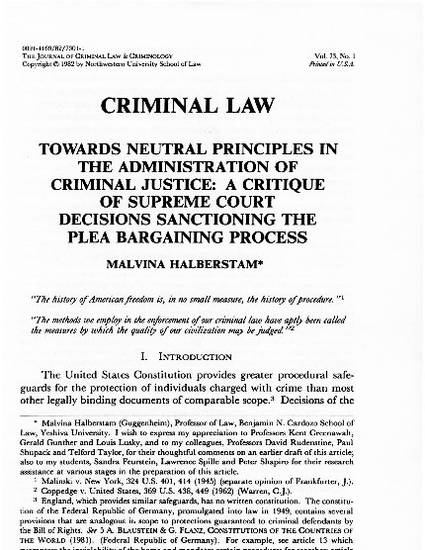
Article
Towards Neutral Principles in the Administration of Criminal Justice: A Critique of Supreme Court Decisions Sanctioning the Plea Bargaining Process
Journal of Criminal Law & Criminology
Publication Date
4-1-1982
Abstract
This article compares the Court's reasoning in plea bargaining cases with its reasoning in non-plea-bargaining cases that involve the same legal principles. It analyzes the Court's arguments for sustaining guilty pleas induced by fear of the death penalty or by promises of leniency, and for sanctioning the imposition of harsher penalties on those who reject prosecutional offers to plead and insist on a trial. Finally, it briefly addresses the contention that the system for the administration of criminal justice in the United States could not function if use of a sentencing differential to induce guilty pleas were prohibited.
Publisher
Northwestern Pritzker School of Law
Keywords
- pleading,
- Plea bargain,
- criminal law,
- criminal justice,
- criminal justice reform,
- criminal law reform,
- Supreme Court of the United States (SCOTUS),
- Victims,
- Victimology
Disciplines
Citation Information
Malvina Halberstam. "Towards Neutral Principles in the Administration of Criminal Justice: A Critique of Supreme Court Decisions Sanctioning the Plea Bargaining Process" Journal of Criminal Law & Criminology Vol. 73 (1982) p. 1 Available at: http://works.bepress.com/malvina-halberstam/16/
